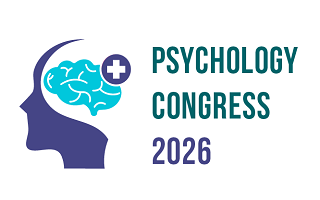3rd International Congress on
Psychology & Behavioral Sciences
March 26-27, 2026 | Osaka, Japan

Address: 5 Chome-3-68 Nakanoshima, Kita Ward, Osaka, 530-0005, Japan.
Psychology Congress 2026

Georgia Southern University, USA
Title : Development and Validation of a Scale to Measure Individual Differences in the Value of Completion
Abstract:
When deciding which tasks to prioritize, people weigh the specific rewards of each activity. For example, students might consider their level of interest in different assignments, or the number of points at stake. Recent theorizing suggests that some individuals may also consider whether the activity offers the chance to finish something. Emerging research shows that people sometimes prioritize this dimension, choosing tasks as if the experience of completion is a reward in itself. We propose here that there is an individual-difference component to how people value completion, and we develop an instrument to detect dispositional variance. This paper introduces a scale to measure the generic value of completion, a two- dimensional latent variable manifesting as the degree to which people feel bothered by incomplete tasks and the degree to which they expect to feel satisfied by completing tasks. We developed items and conducted factor analyses, yielding a 20-item scale with a two-factor structure and high internal reliability. Testing the scale across multiple populations supported its generalizability. Furthermore, we began to assess the discriminant and convergent validity of our scale with respect to related measures. The value of completion has moderately strong positive associations with conscientiousness and the need for cognitive closure. Planned follow-up research will assess test-retest reliability, discriminant validity with additional constructs, and predictive validity with key behaviors. We discuss how, pending these additional tests, the scale may have applications in clinical and organizational settings.
Biography:
Radhika is a first-year clinical psychology doctoral student at Georgia Southern University. She completed her bachelor’s degree in psychology at the University of Virginia. At the University of Virginia, she was the director of HELPLine, a crisis hotline that served her university and greater community. Her main research interests are in psychometrics and intervention development, with a focus on designing effective measurement tools and creating evidence-based strategies to improve mental health outcomes.
